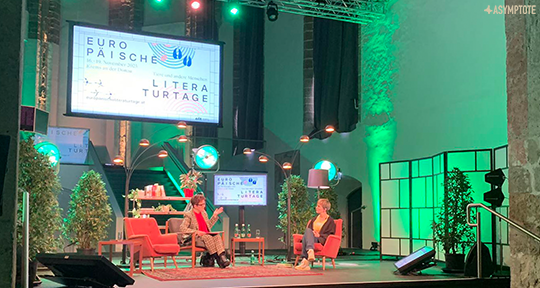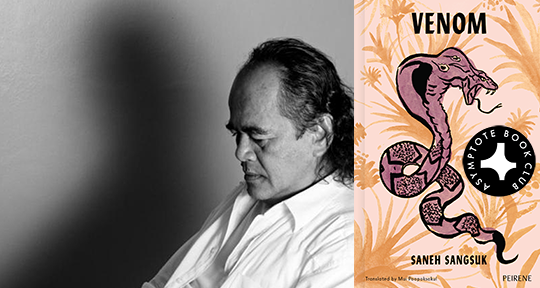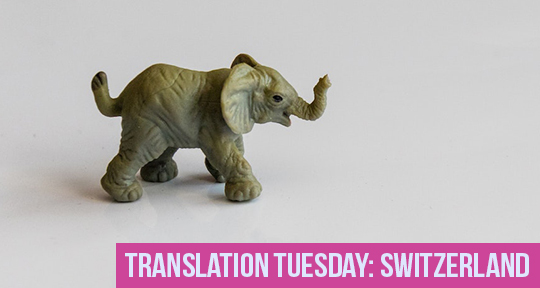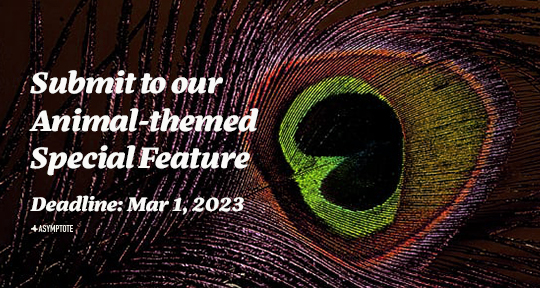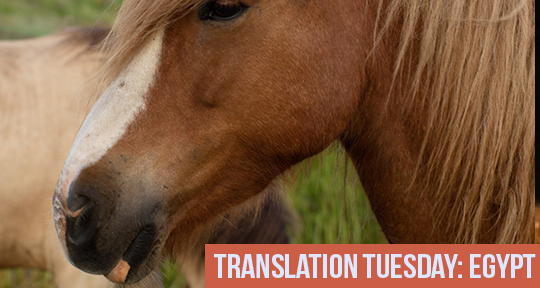Each story in Mohamed Makhzangi’s unique collection Animals in Our Days features a different animal species and its fraught relationship with humans—water buffalo in a rural village gone mad from electric lights, brass grasshoppers purchased in a crowded Bangkok market, or ghostly rabbits that haunt the site of a long-ago brutal military crackdown. Other stories tell of bear-trainers in India and of the American invasion of Iraq as experienced by a foal, deer, and puppies.
Originally published in 2006, Makhzangi’s stories are part of a long tradition of writings on animals in Arabic literature. In this collection, animals offer a mute testament to the brutality and callousness of humanity, particularly when modernity sunders humans from the natural environment. Makhzangi is one of Egypt’s most perceptive and nuanced authors, merging a writer’s empathy with a scientist’s curiosity about the world.
Like Barbara Kingsolver’s Flight Behavior, Haruki Murakami’s The Elephant Vanishes, or J. M. Coetzee’s Lives of Animals, Makhzangi’s stories trace the numinous, almost supernatural, connections between our species and others. In these resonant, haunting tales, Animals in Our Days foregrounds our urgent need to reacquire the sense of awe, humility, and respect that once characterized our relationship with animals.
We are happy to partner with Syracuse University Press to present an excerpt of its debut in English.
FOAL
A wise man was asked: “What possession is the most noble?” He replied: “A horse, followed by another horse, which has in its belly a third horse.”
—al-Damiri, Major Compendium on the Lives of Animals
Trembling, the small foal scurried between his mother’s legs when the sound of explosions struck his ears and the lightning flash of bombs glimmered in his eyes. He couldn’t hear the voices of any of the humans he was familiar with, not even the terrifying voice of the president’s son, whose arrival at the palace race track instantly caused the grooms to tremble and made the horses quake. His voice was rough, and his hand heavy and brutal. He had big teeth that showed when he scowled at other people or laughed with the foal—for him alone the president’s son laughed. He would place his right hand around the foal’s neck and burst out laughing while taking some sugar out of his pocket for him, the purest kind of sugar in the world. He would feed it to him with affection and delight, but he was harsh and irritable toward everyone else. Once the foal saw him beating a stable hand who was slow to saddle his horse. After the stable hand fell to the ground, the president’s son kicked him with the iron spurs of his riding boot, and kept kicking his head until blood poured out of his nose, mouth, and ears. He gave the foal’s own mother a hard slap when she shied away a little just as he was about to ride. He kept slapping her on the muzzle while she bucked, whinnying pitifully, until blood poured from her jaws. He didn’t stop hitting her until the foal ran up and came between him and his mother.
The foal felt the tension in his mother’s warm stomach above him. She was stifling the restless movement in her legs so as not to bump against the body of her little one taking shelter up against her. She stood in place and trembled whenever bombs reverberated or the flash of explosions lit up the sky. During the few lulls, no sooner did she relax and he could feel the warm flow of her affection, than the noise and flashes would start up again. Deafening noise, then silence. Deafening noise, then silence. Fires, the sound of buildings collapsing, and screams. Then after a long grueling night, a terrible silence prevailed. With the first light of dawn, the foal heard a clamor of human voices shouting at each other, and hurrying footsteps, then a lot of people burst in on them, their faces covered in dust and their eyes red. They started fighting with each other around the fenced corral. Then the gate was thrown open, and the foal could feel his mother’s body trying to get away from the rough rope around her neck. Another piece of rope went around his neck, too, and he saw himself running with his mother, bound together to a rope tied to the back of a ramshackle pickup truck that clattered down long rubble-filled streets. Fires blazed on either side of them. Corpses were scattered about. Chaos reigned. READ MORE…


